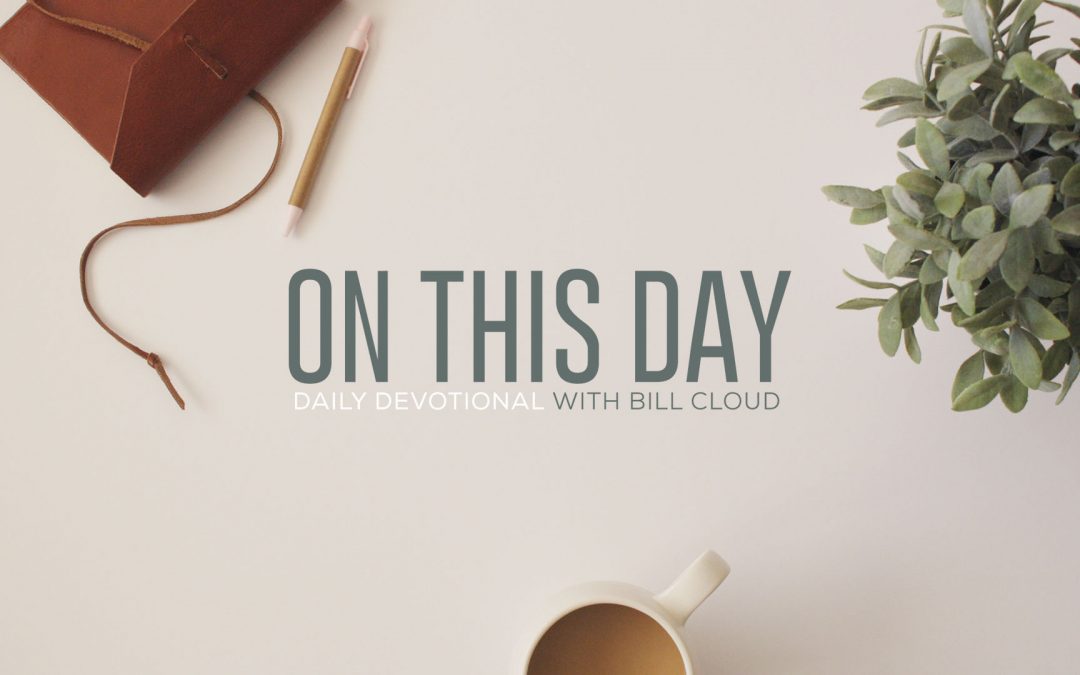Jewish tradition believes it was on this day that Moses was instructed to hew two stones for the tablets of the law. The first set of tablets, hewn by the finger of God, were broken as a consequence of the Golden Calf incident. Later, Moses was instructed to hew two stones himself:
And the Lord said to Moses, “Cut two tablets of stone like the first: and I will write on these tablets the words that were on the first tablets, which you broke.” (Exodus 34:1)
Even though Moses provided the two stone tablets, he did not inscribe the words; that was done by God Himself. Furthermore, the words written on the second set of tablets were the same words that were on the first set of tablets. Here are two points to consider about what happened in this story. First, as we spoke of in the previous devotion, Moses interceded on the behalf of the people, thus foreshadowing the Messiah and His sacrifice and intercession on our behalf. It is Yeshua’s sacrifice that makes it possible for us to come into the covenant with our Creator but that covenant, as hinted at here, is not a different covenant — it is a renewed covenant.
Again, the words written on the second pair of tablets were identical to the words written on the first set, the former symbolizing a broken covenant. In the same manner, the Messiah came, not to start a new religion, but to renew the covenant that had been broken due to Israel’s disobedience. The New Covenant wasn’t “new” in the sense that it was something unseen before. The Messiah renewed the covenant that had been ordained from the beginning but this time, not with the blood of bulls and goats but it was ratified and renewed with His own blood. That fact is what makes it a “better covenant.” The prophet Jeremiah spoke of this renewed covenant and saying that, unlike the one written upon tablets of stone, this renewed covenant would be written upon our hearts:
“But this is the covenant that I will make with the house of Israel after those days, declares the Lord: I will put My law within them, and write it on their hearts. And I will be their God, and they shall be My people.” (Jeremiah 31:33)
Nowhere in the words of Jeremiah do we see that the words God would write upon our hearts would be different than the words etched in stone. The difference is where the words are inscribed, not what is written. Moses’ intercession and his willingness to hew new tablets upon which God inscribed the covenant provides a glimpse of Messiah’s role and what He did for us. It is important for us to see that, through the Messiah, the covenant God writes upon our hearts isn’t a different covenant, it’s a better covenant. The distinction between the Old and the New is the Messiah who renewed the covenant in His own blood.
And so, as recipients and partakers of that better covenant, we are to exhibit a lifestyle that faithfully represents the words of that covenant. Our obedience should not be wrought of those things that are rigid and religious — not as from things written on — but because they are in our hearts. Yeshua said, “If you love Me,” — which is to say, “If you have a relationship with Me and know Me with your heart — keep My commandments.”
And so, as we go about our lives and engage others, we must present ourselves as faithful witnesses of the resurrected Messiah and do what He has commanded because it is in our heart to do so. Anyone can recite Scripture and fill their head with facts and theology, but we are to live our life in a way that is evidence that we have come into a better — not different — covenant because He has written His Word upon our hearts.
Shalom.


This has to be one of the most consise, articulate, beautifully moving explanations of the renewal of the covenant I have ever read. I think I am going to print this off and carry it in my purse so that when people ask me why I worship the way I do I can hand them this! I usually give them my seatbelt analogy: states enacted speed limit laws that we must obey to ensure everyone of the road is safe. Later seatbelts were created for the occasional crash, to save lives when a mishap occurs…but just because we have seatbelts, the speedlimit laws are still valid. The Torah is our speedlimit, and Yeshua’s blood gives us grace; but just because we have His grace doesn’t mean we can break the Torah!! His grace is our safetybelt when we crash. After the wreck, we are expected to obey the speedlimit again! But Bill, this explanation above is so moving, SO clear, so inspired by the Ruach. Whoo-wee, I’mma bout to SHOUT!! (Here comes the penny-costal in me, lol!) THANK YOU for listening to Him, for leading us us in Spirit and Truth. We are so blessed by your work.
I’m so thankful that this was a blessing to you. You have blessed me with your encouraging words.